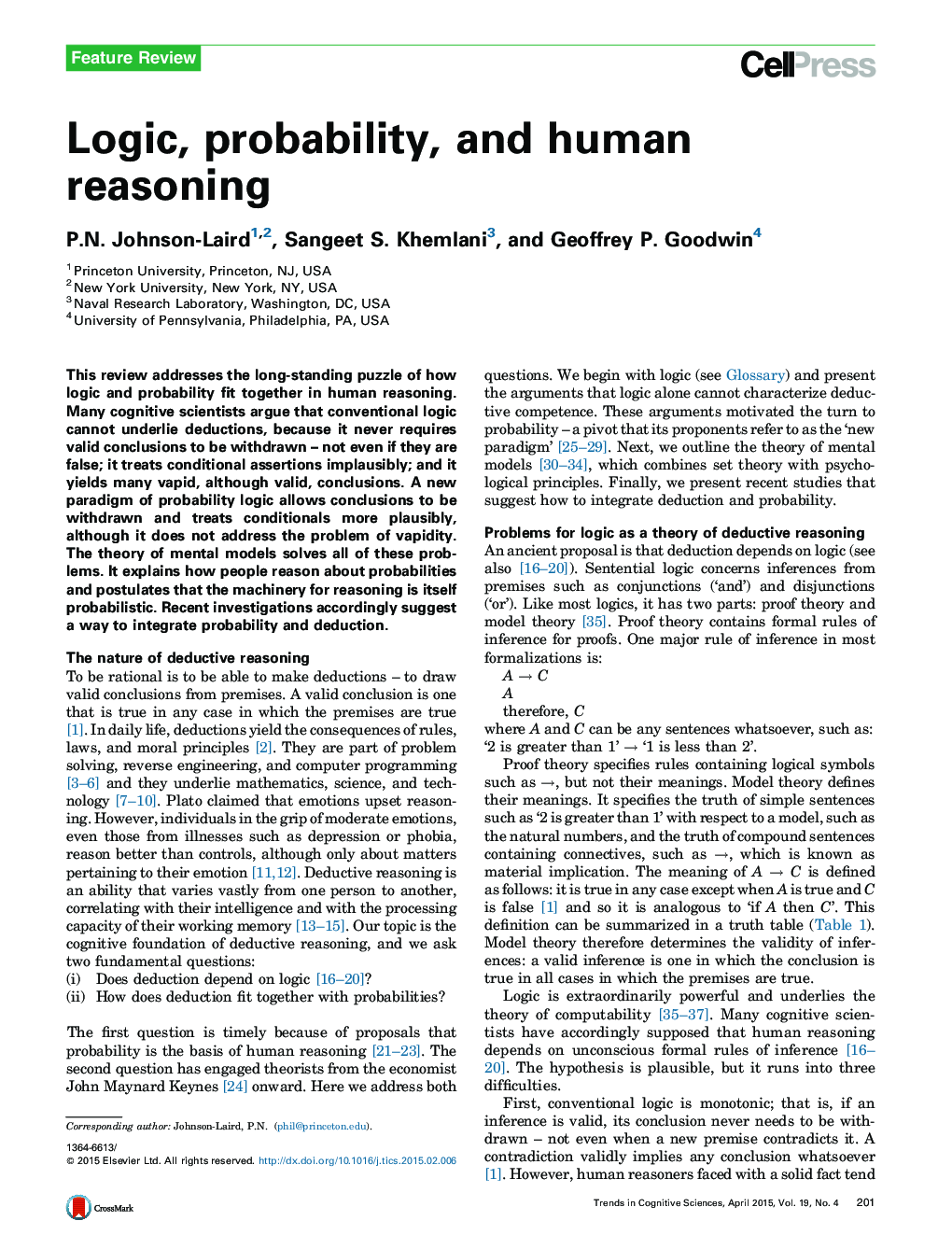| Article ID | Journal | Published Year | Pages | File Type |
|---|---|---|---|---|
| 141401 | Trends in Cognitive Sciences | 2015 | 14 Pages |
•We describe a way to integrate probability with deductive reasoning.•Theories based on logic do not withdraw conclusions that conflict with the facts.•A ‘new paradigm’ based on probabilities solves this problem, but introduces others.•Mental model theory resolves the issues and new studies corroborate its predictions.
This review addresses the long-standing puzzle of how logic and probability fit together in human reasoning. Many cognitive scientists argue that conventional logic cannot underlie deductions, because it never requires valid conclusions to be withdrawn – not even if they are false; it treats conditional assertions implausibly; and it yields many vapid, although valid, conclusions. A new paradigm of probability logic allows conclusions to be withdrawn and treats conditionals more plausibly, although it does not address the problem of vapidity. The theory of mental models solves all of these problems. It explains how people reason about probabilities and postulates that the machinery for reasoning is itself probabilistic. Recent investigations accordingly suggest a way to integrate probability and deduction.
